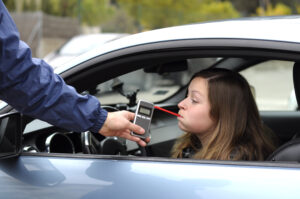Understanding the intricacies of breathalyzer tests in Maryland DUI cases is crucial for both defendants and legal professionals. These tests play a significant role in determining a person’s level of intoxication while operating a vehicle, thus affecting the outcome of legal proceedings. However, delving into the science behind breathalyzer tests unveils a complex process influenced by various factors.
Legal Requirements in Maryland
In Maryland, like many other states, there are specific legal requirements surrounding the administration and interpretation of breathalyzer tests in DUI cases. These requirements are in place to ensure the accuracy and reliability of the results, protecting the rights of defendants. One such requirement is the calibration and maintenance of breathalyzer devices to guarantee their accuracy.
Additionally, Maryland law mandates that law enforcement officers administering breathalyzer tests must be properly trained to conduct these tests correctly. This training ensures that officers follow standardized procedures, reducing the likelihood of errors or inaccuracies in test results. Moreover, defendants have the right to challenge the validity of breathalyzer tests in court if they believe proper procedures were not followed.
Understanding Breathalyzer Technology
Breathalyzer tests rely on the principles of chemistry and technology to measure the concentration of alcohol in a person’s breath. The most commonly used type of breathalyzer is the infrared breathalyzer, which detects alcohol molecules based on the absorption of infrared light. When a person exhales into the device, any alcohol present in their breath absorbs specific wavelengths of light, allowing the device to calculate the alcohol concentration.
However, it’s essential to recognize that breathalyzer tests are not foolproof and can be influenced by various factors. External factors such as environmental conditions, physiological differences among individuals, and the presence of substances other than alcohol in the breath can all impact the accuracy of breathalyzer results.
Challenging Breathalyzer Test Results in Maryland
When facing DUI charges in Maryland, it’s crucial to recognize that breathalyzer test results are not always infallible. Various factors can influence the accuracy of these tests, and challenging their results is a critical aspect of mounting a strong defense
One common issue that can affect breathalyzer accuracy is the calibration and maintenance of the testing equipment. Maryland law requires law enforcement agencies to regularly calibrate and maintain their breathalyzer devices to ensure accurate results. Failure to adhere to these requirements could lead to unreliable readings, which can be challenged in court by a skilled DUI defense attorney.
Additionally, the manner in which the breathalyzer test is administered can impact its reliability. Law enforcement officers must follow specific protocols when conducting breathalyzer tests, including observing the driver for a certain period before administering the test to ensure they do not eat, drink, or regurgitate, as these actions could affect the results. Any deviation from these procedures could compromise the validity of the test and provide grounds for a defense challenge.
Moreover, certain medical conditions and factors can produce false positives on breathalyzer tests. For example, individuals with gastroesophageal reflux disease (GERD) may have higher than normal levels of alcohol in their breath due to the presence of stomach acid. Similarly, individuals with diabetes or those following low-carb diets may experience a phenomenon known as ketosis, which can also lead to elevated breath alcohol readings. These medical conditions and physiological factors must be taken into account when evaluating breathalyzer test results and developing a defense strategy.
In addition to challenging the reliability of breathalyzer test results, a skilled DUI defense attorney can also explore other avenues for defense. This may include questioning the legality of the traffic stop or arrest, challenging the officer’s observations and field sobriety test results, or presenting mitigating evidence regarding the defendant’s behavior and circumstances at the time of the arrest.
Breathalyzer tests are a vital tool in Maryland DUI cases, but they are not without limitations. Understanding the science behind breathalyzer technology and the legal requirements surrounding its use is essential for defendants facing DUI charges. By challenging breathalyzer results and seeking skilled legal representation, defendants can safeguard their rights and improve their chances of a favorable outcome in court.
For experienced legal assistance with DUI cases in Maryland, contact Alpert Schreyer, LLC today. Our experienced attorneys understand the complexities of breathalyzer testing and can provide aggressive representation to protect your rights and achieve the best possible outcome in your case. Don’t face DUI charges alone – let us fight for you.
